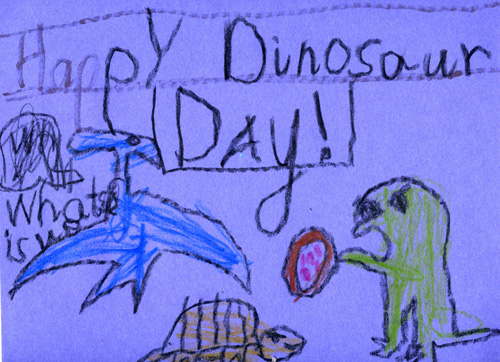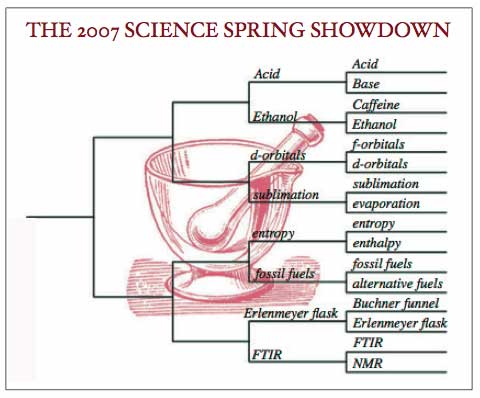In case you somehow missed it: tech writer and blogger Kathy Sierra cancelled public appearances after receiving death threats. In addition to the death threats, she called attention to some posts about her that were threatening in tone (though probably falling short of actual threats) and definitely mean on now-defunct sites set up by other A-list tech bloggers. Since blogging about this, SIerra has received more threats. A number of bloggers think Sierra has smeared the people who ran the now-defunct websites by not drawing a clear enough distinction between the death threats (which they did not make) and whatever their involvement might have been with the posts (not comments) on the now-defunct sites. There are about a gazillion posts you could read on this whole firestorm (here, here, here, here, here, here, here, here, here, here, here, and here, to give just a sampling).
I had never heard of Kathy Sierra before this firestorm struck, but for the last few days I’ve been thinking a lot about issues around online interaction and communication. These thoughts are running in lots of different directions, so rather than try to hammer them into a coherent “manifesto”, I’ll just lay them out and let you tell me how they fit together.
Author Archives: admin
Another expert weighs in on chemistry matches in the Sweet Sixteen.
The pregame show has already started on the Acid vs d-orbitals game, but we’ve just received another set of predictions about this game and the Fossil Fuels vs. Erlenmeyer Flask match (hmm, should I say “match” there?) from the Molecule of the Day guy. Adjust your best accordingly!
Friday Sprog Blogging: “Dinosaur Day” declared.
Yes, the Free-Ride offspring think they have the power to declare today “Dinosaur Day”. This is your official notification.

Science Spring Showdown Sweet Sixteen: Game venues announced!
You’ve been waiting patiently. It’s almost here!
How important are labs for learning science?
Steve Gimbel has a provocative post that suggests the costs of undergraduate lab classes may outweigh the benefits. Quoth Steve:
[E]verything I know about physics, I learned from my theory classes. You see, science classes come in two flavors. There are theory classes where a prof stands in front of the room and lectures and then there are lab classes where for many hours, students walk in ill-prepared and tried to figure out which one of these things we’ve never seen before is a potentiometer, fumble their way through procedures that yield results that are not even close to what they were led to expect, and then plug and chug their way through scientific and error calculations that frankly mean little to them. I will freely admit that all my experiences in lab classes were a waste of intellectual time and curricular space that could have much better utilized.
Now, I’m supposed to be writing a serious academic paper right now*, but Steve, as a fellow philosopher who is well aware of my misspent scientific, actually emailed me to see if I’d weigh in on the (as did another blogger coming at the issue from the perspective of a working scientist). And, coincidentally, just the night before Steve published his post, my better half and I were reminiscing about our undergraduate experiences with laboratory classes. So really, what choice do I have but to respond?
Welcome NYTimes readers! (Plus a few words on my linkage luck.)
If you got here by following the link from Dennis Overbye’s story about the movie Dark Matter, you may want to read the post he quotes about Theodore Streleski and the dangers of extreme power imbalance between graduate students and their advisors. (It’s also possible that this time next year I can post a follow-up about the less extreme but still real power imbalances between the tenured and the untenured.)
And now, let me indulge in a tiny bit of grumbling about linkage:
2007 Science Spring Showdown: Experts handicap the third round chemistry matches.
As we head into the Science Spring Showdown Sweet Sixteen, it seemed prudent to turn to some experts for their predictions on the two remaining games in the chemistry region, Acid vs. d-orbitals and Fossil fuels vs. Erlenmeyer flask. (Of course, we won’t soon forget the exciting first and second round games that brought these four teams to the Sweet Sixteen.)
Here’s what some members of the chemical cognoscenti have to say:
Friday Sprog Blogging: kitchen table conversations concerning water
The participants in the conversation recounted here were not under oath during the conversation, and there exists no official transcript of the conversation.
Dr. Free-Ride’s better half: When we were filling water bottles for soccer practice today, your child had an interesting theory about what was going on with the ice cubes.
Dr. Free-Ride: You put ice cubes in the water bottles? Pretty fancy! So, what was the theory?
Chemistry round two: results for MORTAR AND PESTLE bracket announced!
1st ROUND RESULTS | PRESS CENTER | PRINTABLE BRACKETS

Welcome to coverage of the 2007 Science Spring Showdown second round play in the Chemistry region. The fans in Chemical Arena resorted to a face centered cubic strategy to pack themselves into the stands. You could almost feel the electricity in the air as the products of the first round match-ups were poured into the separatory funnel of the second round. The fans and the teams shook things up. Which teams came out in the top layer, and which saw their hopes of going all the way drained out?
A question for the scientific hivemind: Do IRBs get protocols from evil scientists?
One of my students raised a really good question in class today, a question to which I do not know the answer — but maybe you do.
We were discussing some of the Very Bad Experiments* that prompted current thinking** about what it is and is not ethically permissible to do with human subjects of scientific research. We had noted that institutions like our university have an Institutional Review Board (IRB) that must approve your protocol before you can conduct research with human subjects. At this point, my student asked:
